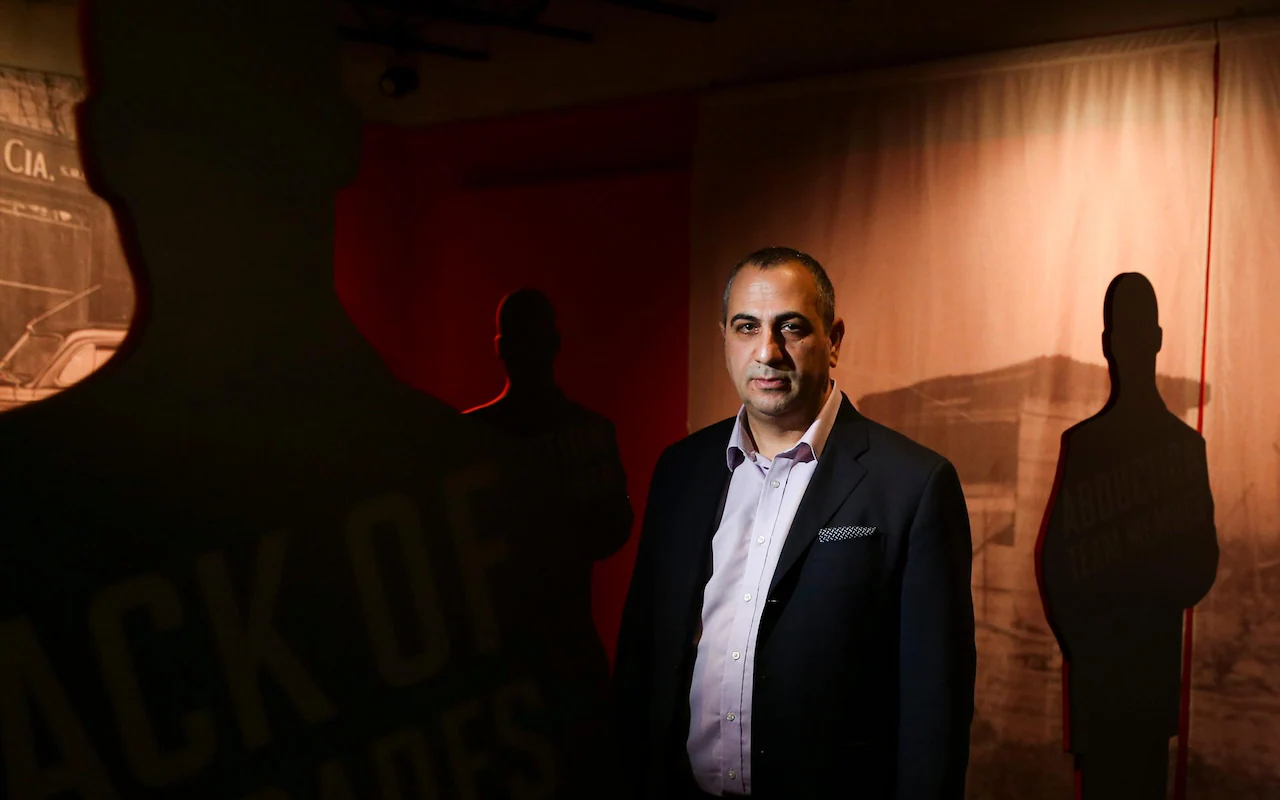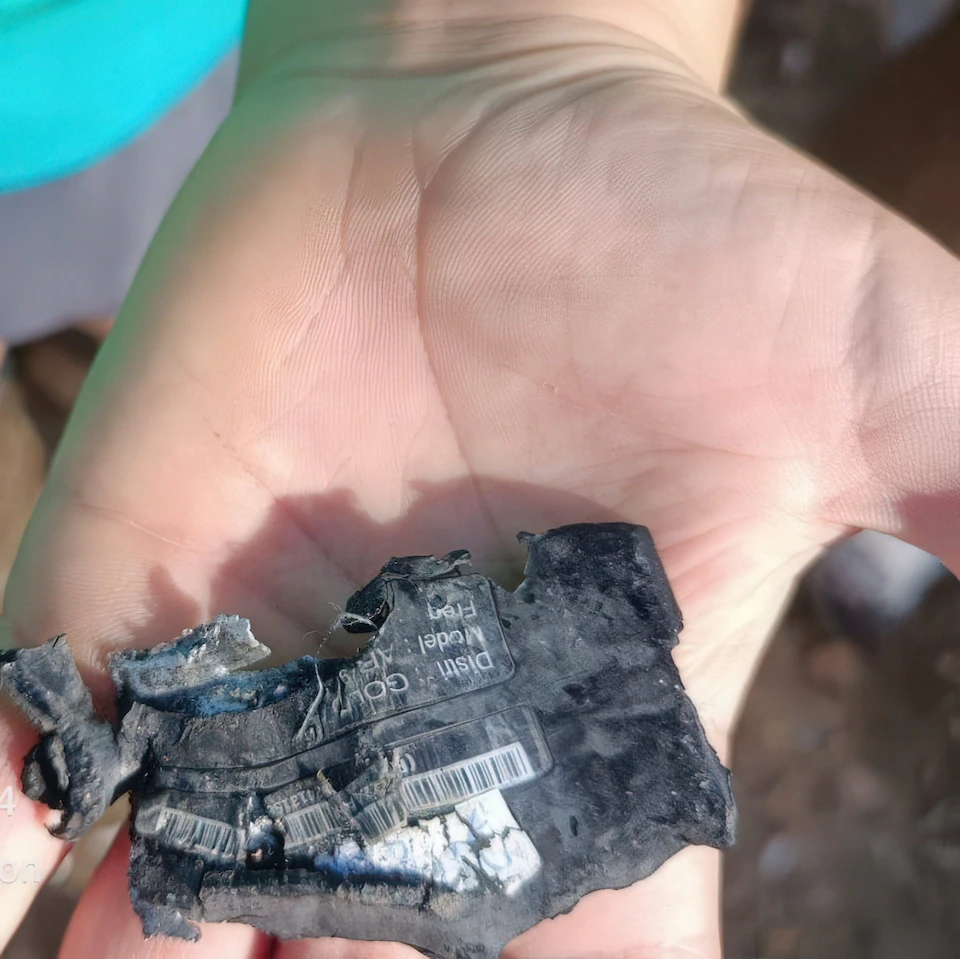The secrets of Mossad’s fearsome reputation – revealed by ex-Israeli intelligence officers
As the death toll from attacks in Lebanon rises, the Israeli security apparatus is living up to its lethal reputation

The exploding pagers and walkie-talkies in Lebanon is a story of spycraft so terrifying and improbable that no movie would dare commit it to screen.
Yet the evidence is all too real, in the gruesome images and footage emerging, of men and women in Lebanon maimed while going about their daily lives, as thousands of communication devices spontaneously exploded on Tuesday.
Israel has not claimed responsibility for the attack, which has claimed at least twelve lives and injured at least 3,000, many of them seriously. But there is no mistaking the sophistication and creativity of the operation, which bears all the hallmarks of Israel’s spy agencies, in particular the fearsome Mossad – the country’s foreign intelligence service.
“The fact that we benefit from the results does not mean that we are behind [the attack],” says Avner Avraham, who served in Mossad for 28 years – 10 of them abroad – and now advises on Hollywood films about Mossad’s history. “The problem is that this operation is so fascinating, so creative and so out-of-the-box, that only the CIA, MI6 or Mossad could do something like this. You need a government backing, a lot of connections, and money, to do something crazy like this.”
Avraham was recruited into Mossad after his regular military service. “It’s prestigious, of course,” he says. “But you cannot share it, even with your parents. It’s not James Bond, it’s a very grey life.” Mossad has two key strengths, he says, compared to other national spy agencies.
“The first is that Jewish people came from all over the world,” he says. “They grew up in different places, they look different, they can speak different languages. My family came from Iraq, I can speak Arabic and we look Iraqi-Arab, so I worked with Mossad undercover in Lebanon.”
He adds that their security services have also been honed by years of conflict. “The other reason we are so good is we have had to fight all these years to live in our country,” he says. “We didn’t ask for this.”
Like the KGB, CIA and British agencies in their Cold War heyday, over the decades Israel’s forces have won a reputation for ingenuity, finding unexpected ways to get to their targets, who are often highly secretive and security-conscious. But the latest attacks have surpassed even the highest estimations of their capability.
“Everything starts with identifying an opportunity,” says one former officer in Unit 81, the secret Israeli weapons division.
“Here, that was Hezbollah’s request to purchase pagers because they wanted to avoid using cellular mobiles because they can all be hacked and traced. But the pager is a device that we can easily control – basically you know how to get into the network and transmit whatever you want to transmit. So when we saw the order for the pagers, they said: ‘OK, we now have an opportunity to put something that we want inside those pagers.’
“Operation-wise you need to think about how to control the whole process. And we know that those pagers came out of a factory in Hungary, but it might be that those pagers left the factory in their original condition. But then maybe the customs diverted it, a delay for a couple of days because of customs issues, and then the [operations team] took care of [inserting the boobytrapped devices]. It might be that the European company is an innocent company.

“How do you boobytrap the devices? There are two ways. Basically, you get the schematics, diagrams of the device which can be easily sourced, and you can buy a few of them in the open market. Then you have a couple of weeks to see how you open one, how you modify it and how you close it.”
The ex-Unit 81 officer dismisses a theory that the pagers may have exploded as a result of remote hacking by Israeli intelligence officers, causing their batteries to overheat. Instead, he says, an explosive substance will have been inserted into each device.
“I don’t think that the battery was primed to overheat and explode, as has been suggested. No, no. The PETN [pentaerythritol tetranitrate] explosive, which it seems was used, by the way, is specifically hard to detect by sniffer dogs. There would have been other requirements, too: it needed to explode only once when the command was given; not before; only on command.”
In such scenarios, says the former officer, if it proves too difficult to gain access to the “original device” due to be delivered to the intended target of the assassination, “you just copy it, make new ones, and replace the originals, one by one. We must make sure that it is our new beepers that get delivered. And that is possible because we can know everything down to the serial numbers, the packaging, everything. With a few thousand units you can swap one shipping pallet for another. Who looks after those pallets? You think there was a Hezbollah guy escorting it the whole way? No.”
If the scale and detail are extraordinary, this is not the only time Mossad have exploited everyday technology, phones in particular.
In 1972, Mossad agents seeking revenge for the Munich Olympic killings snuck into the Paris apartment where Mahmoud Hamshari, the Palestine Liberation Organisation’s (PLO) representative there, was living. While he was out being interviewed by an agent pretending to be an Italian journalist, other agents replaced the base of his phone with explosives. On December 8 they rang him, confirmed he was there and detonated the bomb. He never recovered from his injuries and died a month later.

In 1996, Yahya Ayyash, the chief bombmaker for Hamas, was assassinated by Shin Bet, Israel’s domestic security agency, using a booby-trapped mobile phone. They had persuaded Kamil Hamad, the uncle of Ayyash’s childhood friend, Osama Hamad, to work for Shin Bet knowing that Ayyash often borrowed Osama’s phones. They gave Kamil phones that had been tampered with, which were passed on to Osama, who passed it on to Ayyash. Early in the morning of January 5, Ayyash’s father rang him. An Israeli spy plane picked up the conversation and relayed it to Shin Bet, who detonated the device, killing Ayyash instantly.
“Israel had been looking for him for a long time,” says Amit Assa, who was serving in Shin Bet during the 1996 assassination. “The operation took months of planning. It was a very big operation and you’re waiting for the right moment. Everyone is working night and day, not sleeping. It was a unique success, but the feeling is one of relief, not joy. It was a relief to have this terrorist off the table because he was killing a lot of Israelis. But it’s killing a person.”
Pagers were thought to be more secure, because they can only receive, rather than broadcast. The Hezbollah connections did not count on the Israeli forces somehow tampering with thousands of devices, booby-trapping on an industrial scale.
“This looks to be what we call a ‘supply chain attack’,” says Jonathan Spyer, an author and advisor who served in an Israeli tank regiment, “which is where a company either started by Israel or acting on Israel’s behalf supplied the devices to Hezbollah.”
The ex-Unit 81 officer says that some recruits to Israel’s technical units are spotted while still at school and doubts that the pager plan “came out of the top military ranks. It will have been a 25-year-old saying, look at these beepers. Don’t you think there is something we can do with that?”
Israel has not exclusively used communication devices for such attacks, says Spyer. In February 2008, Imad Mughniyeh, the Hezbollah number two, was killed by a car bomb, allegedly a joint CIA-Mossad effort after years of attempted assassinations. “So somebody responsible for the maintenance of his car had acted.”
“The first appeal of this kind of operation is that it doesn’t leave any fingerprints,” he says. “Everyone kind of knows who was responsible, but there isn’t an obvious signature where you can say this was an act of war. Second, it’s cost-free in that it doesn’t involve risking the lives of the home country’s citizens. Services much prefer not to endanger their own personnel. This is also to do with advances in technology. The notion you could have your own cloak-and-dagger operatives wandering around is much more difficult to achieve. Services tend to employ technological means, as we have just seen, or they pay small amounts of money to local people.”

Mossad’s fearsome reputation has long been a source of pride to Israelis. Just as the Special Air Service (SAS) has been a source of pride to postwar Britain, the activities of Israel’s intelligence services speak to Israelis’ national sense of self. “Israelis take pride in seeing themselves as people who are very good at creative thinking and improvisation and not following rules, but quickly coming up with inspired solutions,” Spyer adds. “The high-tech industries have been a receptacle of that pride in recent years, but the security services and the military see themselves in that way, too.” After the calamitous intelligence failure of October 7, this operation, as with other recent high-profile cases, such as the rescue of hostages from Gaza, is a chance for Israeli’s services to restore their reputation.
What is arguably less clear is the long-term benefit of these kinds of actions, as spectacular as they are. “For something like this you need good cooperation but you also need luck,” says Dr Ahron Bregman, a political scientist at King’s College who served in the Israeli Defence Forces (IDF). “The Israelis are very proud; this is a James Bond operation. The big question is: what’s the purpose? Have you wasted something amazing, just in order to impress? What Israel has done, above all, is humiliate Hezbollah.” The assassination of Ayyash, he points out, led to terrible reprisal suicide bombings in Tel Aviv. “Now, everyone is waiting to see what Hezbollah’s response will be. It might lead to war.”
While Hezbollah tends to its wounded and the rest of the world looks on, shocked at Israel’s terrifying technological mastery, the civilians in Israel, Lebanon and further afield will wonder where it might lead.